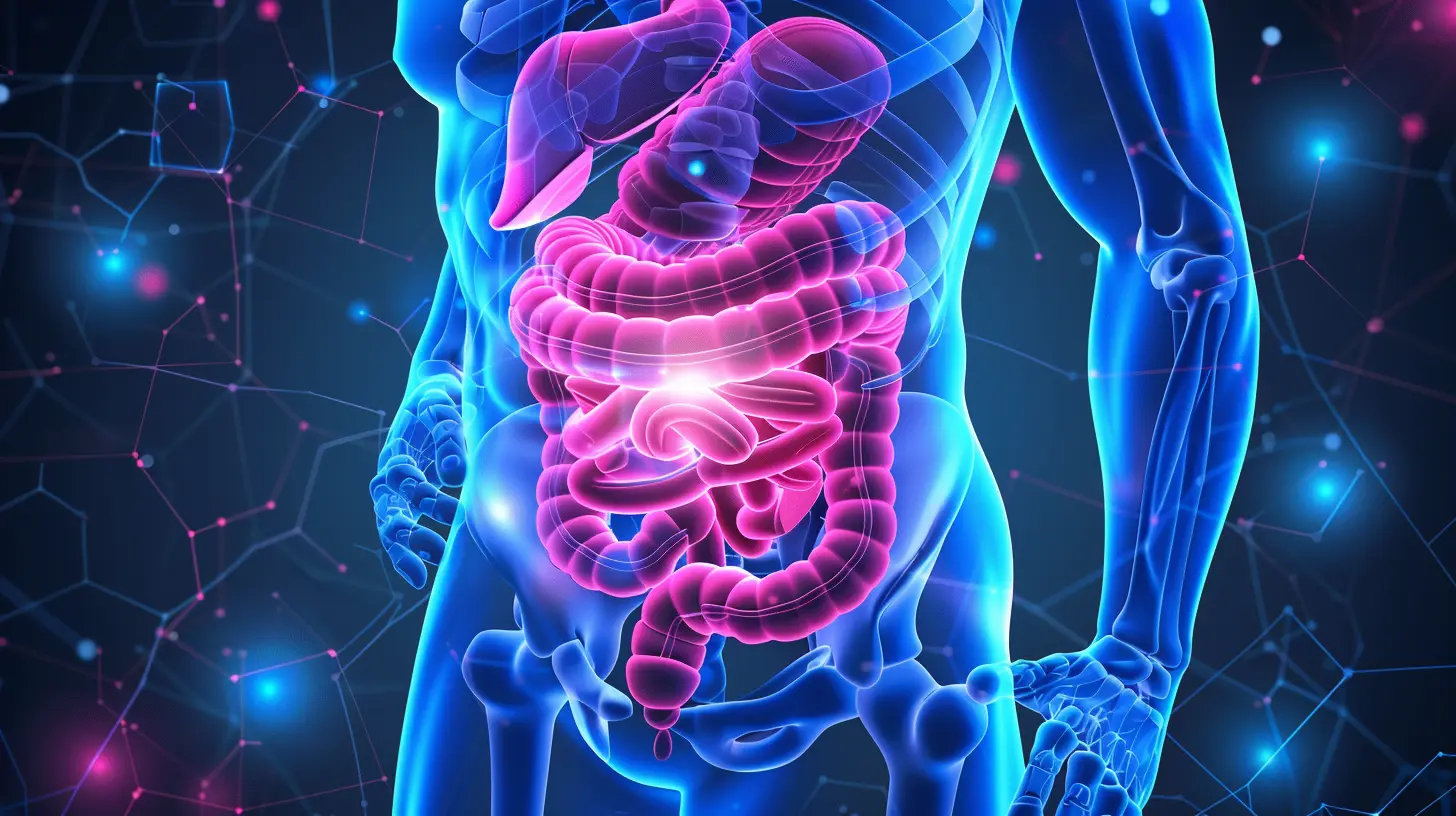The Connection Between Sleep and Digestive Health
31 October 2025
Ever notice how a lousy night’s sleep can mess with your entire day—including that uncomfortable bloated feeling or a sluggish gut? Or how stress-induced insomnia seems to bring on tummy troubles out of nowhere? You're not imagining things. There’s a much deeper connection between sleep and digestive health than most of us realize. It's not just about rest and food—your gut and your sleep are having full-blown conversations while you're catching Z’s (or not).
So, let's get cozy and talk through how your bedtime habits and your belly are more intertwined than peanut butter and jelly.
Why Sleep Matters More Than You Think
Sleep isn’t just a luxury—it’s a basic biological need. When we skimp on sleep, our bodies start waving red flags everywhere, and guess where one of the biggest flags goes up? Yep, your digestive system.Sleep is when your body recovers, rebuilds, and resets. Your gut, being lined with millions of nerve cells, communicates directly with your brain through what’s called the gut-brain axis. If your sleep is off, this entire communication highway can get jammed up, leading to digestive issues.
So, what exactly happens between your gut and your pillow each night?
Understanding the Gut-Brain Sleep Connection
Let’s dive into this a bit more. The gut-brain axis is this incredible, two-way communication system linking your digestive system and your central nervous system. Think of it like texting between your brain and your belly.Sleep plays a huge role in regulating this texting service. When you don’t sleep well, your brain struggles to send clear messages, and your gut doesn’t know how to respond. The result? Constipation, indigestion, gas, acid reflux—basically a lot of grumbling both emotionally and physically.
The Sleep-Digestion Domino Effect
Now here’s where it gets really interesting. Poor sleep doesn’t just make your digestive system sluggish; it can actually change how your gut functions.Hormonal Havoc
Your sleep affects hormones like cortisol, ghrelin, and leptin. These regulate stress, hunger, and fullness. When you're sleep-deprived, cortisol (your stress hormone) spikes, making your gut more sensitive and inflamed.At the same time, ghrelin (the hunger hormone) goes up, while leptin (the "I'm full" hormone) goes down. This signals your body to eat more, often leading to late-night snacking or emotional eating—which, spoiler alert, doesn’t sit well with your digestive system.
Altered Gut Motility
Your gut needs rest just like you do. During sleep, especially deep sleep, your digestive system slows down and switches to "housekeeping mode." You know that grumbling sound early in the morning? That’s your gut sweeping up from the day before.When sleep is interrupted or inadequate, this housecleaning job gets skipped. That can lead to irregular bowel movements, bloating, or even serious issues like Irritable Bowel Syndrome (IBS).
Common Digestive Issues Linked to Poor Sleep
If you've ever dealt with any of these, poor sleep could be a hidden contributor:1. Acid Reflux and GERD
People with Gastroesophageal Reflux Disease (GERD) often find their symptoms worse at night. Lying flat while trying to sleep allows stomach acid to flow backward into the esophagus, causing heartburn and discomfort. Poor sleep, in return, can make GERD symptoms more intense. It’s a vicious cycle.2. Irritable Bowel Syndrome (IBS)
Studies have shown that individuals with IBS often have disturbed sleep patterns. Whether it's trouble falling asleep, frequent waking, or light, unrestful sleep, it all adds up to a gut that can’t regulate itself properly.3. Constipation
Sleep helps stimulate the natural peristalsis (aka the muscle movements of your intestines). When you shortchange your sleep, those muscles become sluggish, leading to—you guessed it—constipation.4. Inflammation and Leaky Gut
Chronic sleep deprivation increases gut permeability, commonly known as "leaky gut." This allows toxins and bacteria to slip into your bloodstream, promoting inflammation throughout the body.But Wait—Poor Digestion Also Affects Your Sleep
Yep, the relationship is a two-way street.If your gut isn’t happy, sleep can be a nightmare. Why? Because your digestive processes don’t stop when you go to bed. If you’ve eaten a heavy or spicy meal before lying down, those foods can trigger acid reflux or discomfort that disrupts your REM cycles.
A bloated tummy, gas pain, or the need to keep running to the bathroom—who can sleep through that?
Tips for Improving Sleep and Supporting Digestive Health
Let’s get practical, shall we? If you want to give your gut and your sleep quality a boost, here are some simple lifestyle hacks that can work wonders.1. Stick to a Sleep Schedule
Try going to bed and waking up at the same time every day—even on the weekends. Your body thrives on consistency, especially your digestive processes.2. Create a Gut-Friendly Evening Routine
- Eat dinner at least 2-3 hours before bed- Avoid heavy, greasy, or spicy foods in the evening
- Keep portions moderate and balanced
- Limit alcohol and caffeine intake
3. Wind Down Without Screens
Blue light from phones and TVs messes with your melatonin production (that’s your sleep hormone). Instead, try reading a book, journaling, or doing some light stretching.4. Try Relaxation Techniques
Meditation, deep breathing, or gentle yoga can help trigger your parasympathetic nervous system—aka “rest-and-digest” mode. This not only helps you fall asleep faster but also supports gut function.5. Watch Your Gut Health During the Day
- Stay hydrated- Eat fiber-rich foods (hello fruits, veggies, and whole grains)
- Incorporate probiotics and fermented foods
- Manage stress (it’s a digestive health killer)
When to See a Doctor
If you’re consistently struggling with sleep and digestive discomfort, it’s worth chatting with a healthcare provider. Issues like sleep apnea or chronic IBS need a tailored approach. Don’t tough it out—help is out there.Final Thoughts: It’s All Connected
Your gut and your sleep are like dance partners—if one steps out of rhythm, the whole routine gets shaky. Taking care of one often helps the other. So, next time you’re dealing with bloating or can't get a good night’s sleep, take a step back and look at the bigger picture.Start simple. Eat mindfully, prioritize rest, and give your body the chance to work in harmony. Trust me, your gut (and your dreams) will thank you.
all images in this post were generated using AI tools
Category:
Bowel HealthAuthor:

Sophia Wyatt
Discussion
rate this article
1 comments
Chantal Vaughn
Sleep tight, snack right! Who knew that counting sheep could also count for a happier tummy? Dreamy nights nourish both mind and gut – a cozy combo!
November 4, 2025 at 4:59 AM

Sophia Wyatt
Thank you for your thoughtful comment! It's great to see the connection between restful sleep and digestive health resonating. Sweet dreams and healthy snacks indeed make for a happy tummy!


